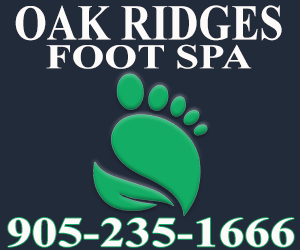D
Dale Killingbeck
Guest

CASPER — The Casper City Council took its first step Tuesday to get out of the massage therapy regulation business, voting unanimously to repeal language associated with it in its ordinance that regulates businesses affecting public health.
Tuesday’s action was the first reading of the proposed change. Three readings are required to repeal the language and oversight of massage therapists.
The move follows a work session discussion last month where council members were told by Chief of Staff Fleur Tremel that Casper’s current ordinance was ineffective and hard to enforce.
City Manager Carter Napier told the council Tuesday that removing massage therapy from the ordinance covering public health follows consultation with massage therapists in town.
He said the city initially passed the ordinance in 2020 to have a more “robust permitting process,” but that hasn’t worked.
“It’s become clear that the changes that were made back in those years are not creating the change that we were hoping and streamlining the process in a way that we were anticipating,” he said. “Council has indicated in the past and continues to feel as near as I can tell that some effort to see some more regulation at the state level would be more appropriate than trying to take it on at the local level.”
At an April 8 work session, Tremel told the council that the best solution was to encourage the state to regulate massage therapists and businesses. The state has no licensing board for massage therapy.
“We don’t have the expertise to do this here at this level,” she said. Tremel said a meeting with massage therapists who were initial proponents of the ordinance showed they agreed that the best solution was to eliminate references to massage therapy in the city’s ordinance.”
In addition to massage therapy, the current ordinance covers bars, motels, food stores, child day care, campgrounds and much more.
No Permits Or Licenses
The changes to the ordinance mean that massage therapy will no longer be regulated and that licenses for massage therapy will no longer be required.
City Attorney Eric Nelson told the commission in April that under the ordinance, a permit is needed for a business as well as a license for the massage therapist.
“What we would do is basically go in and strip out any references to massage therapy, both with regard to the permit and for the licensure for the individual,” he said.
A permit application is then forwarded by the city clerk to the police department for a background check and fingerprinting. That application and background check will no longer happen if massage therapy is stripped from the regulations.
Casper massage therapist Riley Fars, who runs Wyld Flower Massage Therapy, agrees the current ordinance is ineffective. She has discussed the ordinance with the city.
Fars said she graduated from an 1,100-hour program at Boulder College of Massage Therapy in 1997. She was not one of the massage therapists who initially lobbied the city for an ordinance in 2020.
“I think the purpose behind it was to eliminate the prostitution and human trafficking that goes on under the guise of massage,” she said.
City efforts, which included police involvement as well as checks on training and national certification requirements, were not effective in screening out the bad actors.
“Somehow, they were faking documentation,” Fars said.
What Led To Regulation
The removal of the regulation comes despite the region’s past issues with massage businesses.
In 2009, a federal investigation led to charges and prostitution convictions related to Tokyo Massage, which operated on U.S. Highway 20/26 east of the Casper/Natrona County International Airport.
Fars said she would like to see the state regulate the industry because she things it will be less invasive than the city.
Under the ordinance, she said she had to get her permit every two years and the city was thinking about going to one year as well as requiring her and other massage therapists to get a health physical.
“They were going to have the health department come in and do random inspections like they do for salons,” she said. “To let somebody in to rifle through my things, I am not sure what that is going to prove or not prove in the way of prostitution and human trafficking.”
As for consumers, Fars said a legitimate business will be proven through the services that are provided.
“These seedy types of places exist even in states that have state regulation around massage therapy,” she said. “Which is unfortunate.”
Dale Killingbeck can be reached at [email protected].





























































































